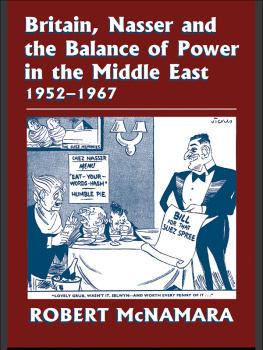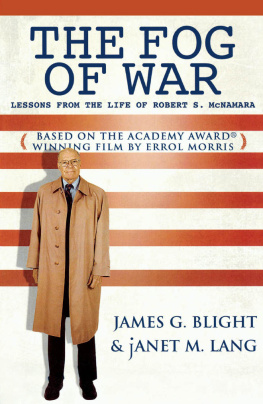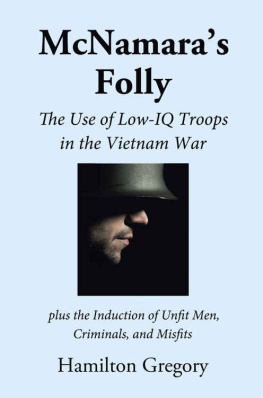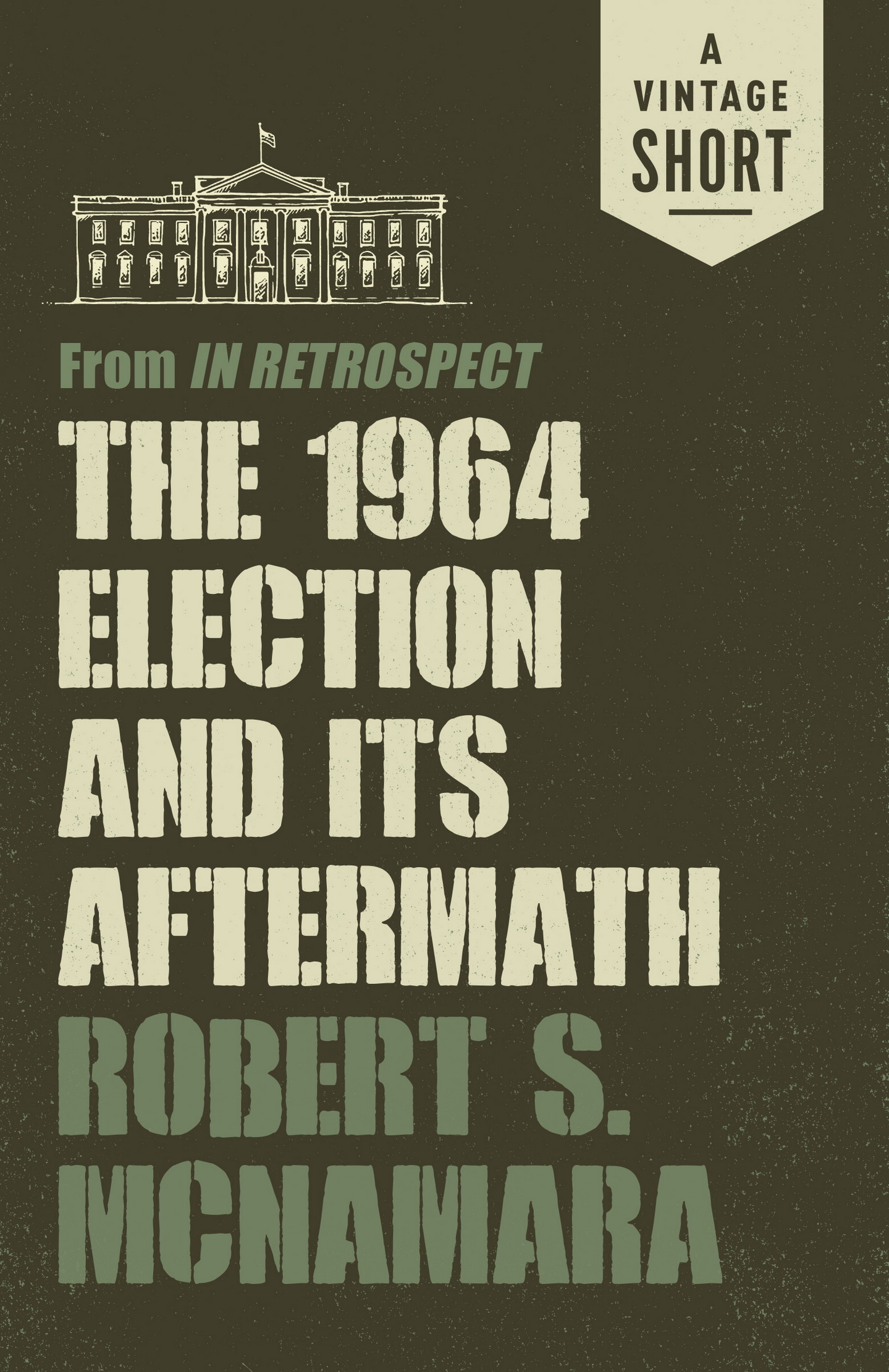Robert S. McNamara was secretary of defense under Presidents Kennedy and Johnson, president of the Ford Motor Company, and president of the World Bank. After leaving the World Bank he was active in economic development efforts across the globe and in the arms control and nonproliferation movements. He died in 2009.
A LSO BY R OBERT S. M C N AMARA
The 1964 Election and Its Aftermath
from In Retrospect
by Robert S. McNamara
A Vintage Short
Vintage Books
A Division of Penguin Random House LLC
New York
Copyright 1995, 1996 by Robert S. McNamara
All rights reserved. Published in the United States by Vintage Books, a division of Penguin Random House LLC, New York, and in Canada by Random House of Canada, a division of Penguin Random House Canada Limited, Toronto. Originally published in hardcover in the United States by Pantheon, a division of Penguin Random House LLC, New York, in 2007.
Vintage and colophon are registered trademarks of Penguin Random House LLC.
The Cataloging-in-Publication Data for In Retrospect is available from the Library of Congress.
Vintage eShort ISBN9780525562634
Series cover design by Cardon Webb
www.vintagebooks.com
v4.1
a
Contents
August 8, 1964January 27, 1965
M any people today believe President Johnson put off making decisions on Vietnam because he wanted to concentrate on winning the 1964 presidential election. Some even allege that he concealed an intention to expand vastly the war for political reasonsthat he wanted to paint the Republican candidate, Sen. Barry M. Goldwater (R-Ariz.), as a warmonger and himself as a reasonable, peace-loving statesman.
If Lyndon Johnson had in mind a plan to escalate the war, he never told me. And I believe he had no such plan. He never indicated to me or to the Joint Chiefs that he wanted us to hold back in Vietnam because of the election. In fact, there was still no consensus among his advisers about what to do.
Throughout this period, military and political conditions in South Vietnam rapidly worsened, heightening the dilemma we faced between avoiding direct U.S. military involvement and preventing the loss of South Vietnam. Deepening divisions over what to do in the face of Saigons accelerating decline added to our uncertainty and muddled our policy. Running through our debates like a dark thread was the growing frustration and desperation we felt about a difficult and increasingly dangerous problem.
Barry Goldwater took a hard line on Vietnam throughout the 1964 campaign. In early March, he was quoted musing that ten years before, when Frances Vietnam force was under siege at Dien Bien Phu, the United States might have done well to drop a low-yield atom bomb to defoliate the trees the attackers used for cover. The next day he amplified the point. Now that America was involved, he said, we should be carrying the war to North Vietnamten years ago we should have bombed North Vietnam, with no risk to our lives. Needless to say, such bellicose talk alarmed many voters.
President Johnson, meanwhile, seemed a model of moderation and restraint. One of his firstand, in many respects, most thoughtfulcomments on Vietnam came in a speech to the American Bar Association in New York City on August 12. The phrases reflect the skill of his speechwriter (whom the record does not identify), but the beliefs were unquestionably the presidents:
Since the end of World War II,we have patiently labored to construct a world order in which both peace and freedom could flourish.
We have lived so long with crisis and danger that we accept, almost without division, the premise of American concern for threats to [that] order.
We have done this because we have, at painful cost, learned that we can no longer wait for the tides of conflict to touch our shores. Aggression and upheaval, in any part of the world, carry the seeds of destruction to our own freedom and perhaps to civilization itself.
We have done this, lastly, for a reason that is often difficult for others to understand. We have done it because it is right that we should.
Friendly cynics and fierce enemies alike often underestimate or ignore the strong thread of moral purpose which runs through the fabric of American history.
Of course, security and welfare shape our policies. But much of the energy of our efforts has come from moral purpose.
It is right that the strong should help the weak defend their freedom.
It is right that nations should be free from the coercion of others.
People have hotly debated whether President Johnsons foreign policy rested on moral grounds. I have no doubt that such considerations influenced him and many of his advisers, including me. Whether they should haveor should influence administrations todayremains highly controversial. Pragmatists and political realists argue they should not. I believe they shouldas, for example, in avoiding indiscriminate bombing of North Vietnam or incurring the risk of the use of nuclear weapons. This issue again merits debate as America struggles to define its proper role in the postCold War world.
In any event, during these months and long after the election, President Johnson feared that the American right wing would push us ever more deeply into Indochina and expose us to ever greater risks of war with China and the Soviets. To counter this pressure, he said things that would return to haunt him. In August, for example, he declared, with obvious reference to Goldwater: Some others are eager to enlarge the conflict. They call upon us to supply American boys to do the job that Asian boys should do.Such action would offer no solution at all to the real problem of Vietnam. He added, The South Vietnamese have the basic responsibility for the defense of their own freedom. He repeated this formulation over and over during the campaignin New Hampshire and Oklahoma, in Kentucky and Ohio.
Was he hiding something? To us behind the scenes, Johnson had made the goal in Vietnam crystal clear. Win the war! he told Dean Rusk, Mac Bundy, and me in his first meeting with us as president. He never deviated from that objective. But we could never show him how to win at an acceptable cost or an acceptable risk.
There was more he could have told the American people. While we had no agreed-upon plan to send in combat forces, a plan to use American airpower at a minimum had been under debate for months, and there was growing doubt that Saigon could continue for long to defend itself. The president disclosed none of this publicly. Had he done so, he probably would have had to add something like Were in a helluva mess, and I dont know what may happen. But he did not.
Of course, total candor is not customary for politicians under such circumstances. Woodrow Wilson did not exhibit it during the 1916 presidential campaign, when he ran on the slogan He Kept Us Out of Waronly to seek a declaration of war against the kaisers Germany the following spring. Franklin Roosevelt did not exhibit it during the 1940 campaign, when he said he was not going to send American troops to fight in a European warshortly before we entered World War II. President Johnson firmly believed that a Goldwater victory would endanger the United States and threaten world stability. He also believed that the endGoldwaters defeatjustified the means. So what he said publicly during the campaign was accurate only in a narrow sense. It was the truth, but far from the whole truth.






